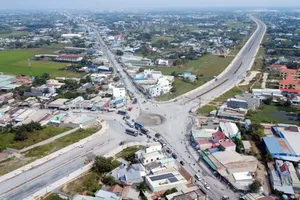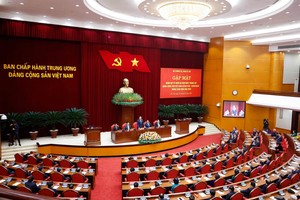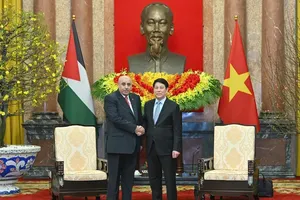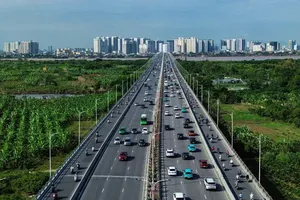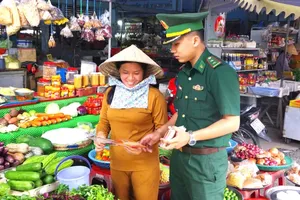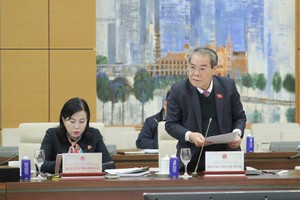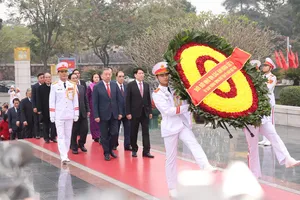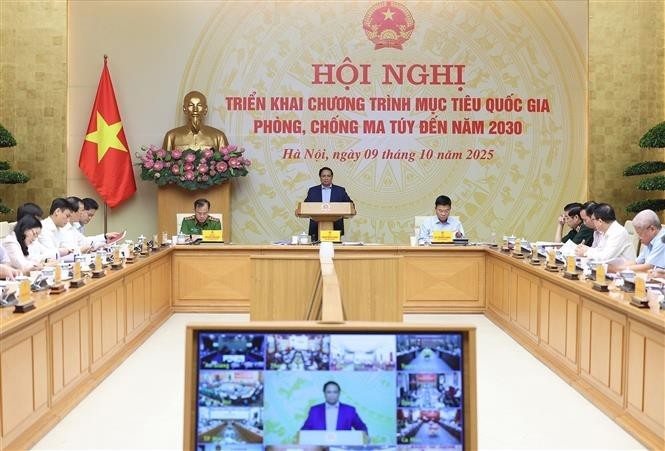
Prime Minister Pham Minh Chinh has highlighted the message that "each citizen is a soldier, each family is a stronghold, and each locality is a fortress in the fight against drugs," calling on all people to condemn and reject the existence of drug-related crime and social issues, as well as to inform and report drug offenders to the police.
Concluding a nationwide teleconference to launch the National Target Programme on Drug Prevention and Control to 2030, PM Pham Minh Chinh stressed that drug prevention is an urgent, long-term mission requiring persistence and coordination across the political system.
He stressed the need for efforts to reduce drug supply, demand, and harm and increase legal effectiveness, investment resources, and smart governance in drug prevention and control activities.
The PM stressed that drugs remain a direct threat to the country’s socio-economic development and social safety, causing socio-economic costs estimated at VND11 trillion (US$417.43 million) annually.
A report delivered at the conference showed that the global drug trade continues to grow, with an estimated 3,000 tonnes produced annually and 316 million users worldwide—a figure rising by 3 percent each year. Southeast Asia’s Golden Triangle remains a major hotspot for drug production and trafficking.
In Vietnam, from 2020 to 2024, authorities handled over 20,000 drug-related cases and detained more than 31,000 suspects annually. Seizures included nearly 1,000 kg of heroin and over 5,000 kg and five million pills of synthetic drugs each year. Around 238,000 individuals nationwide are currently classified as drug addicts or users, posing serious risks to public health, education, and social stability. Drug use is spreading among youth and even infiltrating schools, while Vietnam is increasingly being targeted as a transit hub for international drug trafficking.
The 2030 program seeks to mobilize the political system and the public in drug prevention, with a strong focus on local implementation. It aims to build a safe, healthy society and contribute to socio-economic development.
PM Pham Minh Chinh affirmed the Government’s strong political will, backed by significant resource allocation and multi-sectoral coordination, to combat drug-related crime.
Ordered by the PM, the Ministry of Public Security has led the formulation of the National Target Program on Drug Prevention and Control to 2030, which the Government submitted to the National Assembly for approval and has since implemented via a national action plan with five key solutions and 20 tasks.
He reiterated the need to approach drug prevention with comprehensive and urgent measures, combining supply and demand reduction with harm mitigation. The campaign must be inclusive, with the core role played by specialized forces and active participation from all social groups.
Leaders at all levels must take direct responsibility, with no delegation of duties, and strengthen inspection and accountability to avoid complacency.
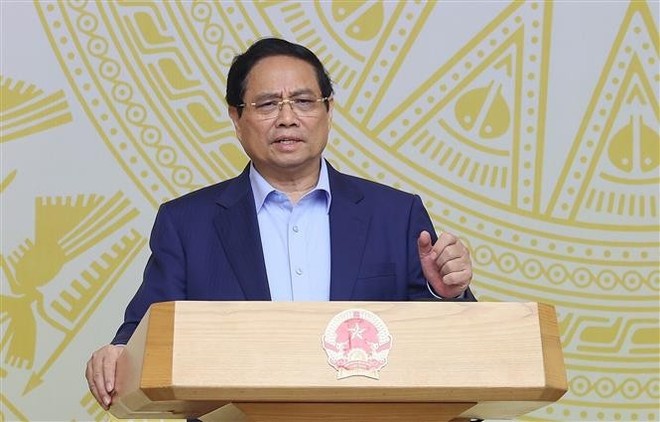
To ensure the program’s success, PM Pham Minh Chinh requested that ministries, sectors, and localities review and revise laws and policies for better alignment and feasibility.
The Ministry of Public Security was asked to finalize amendments to the Drug Prevention and Control Law for submission to the National Assembly during its 10th session and issue guiding documents and monitoring frameworks to standardize implementation.
All relevant bodies must develop detailed plans to implement the program with clear responsibilities, tasks, authority, timelines, personnel, and outcomes. Urgent tasks should be prioritized immediately rather than delayed to 2030, he underlined.
The PM highlighted major targets of 20 percent of communes and wards becoming “drug-free” by 2025 and at least 50 percent by 2030, along with 15–20 percent of provinces and cities.
He called for major investment in drug rehabilitation centers, ensuring no addicts go untreated. This includes upgrading facilities, adopting smart technologies for monitoring, and attracting qualified medical and educational staff. Support for post-rehabilitation integration will be enhanced through vocational training, loans, and social participation programs.
Local authorities must strictly manage drug-related businesses, prevent hotspots from forming, and promote models such as drug-free schools and drug-free residential areas.
The PM also emphasized the need to raise public awareness through stronger communications campaigns. He also asked ministries, sectors, and localities to allocate adequate resources to implement the program.
